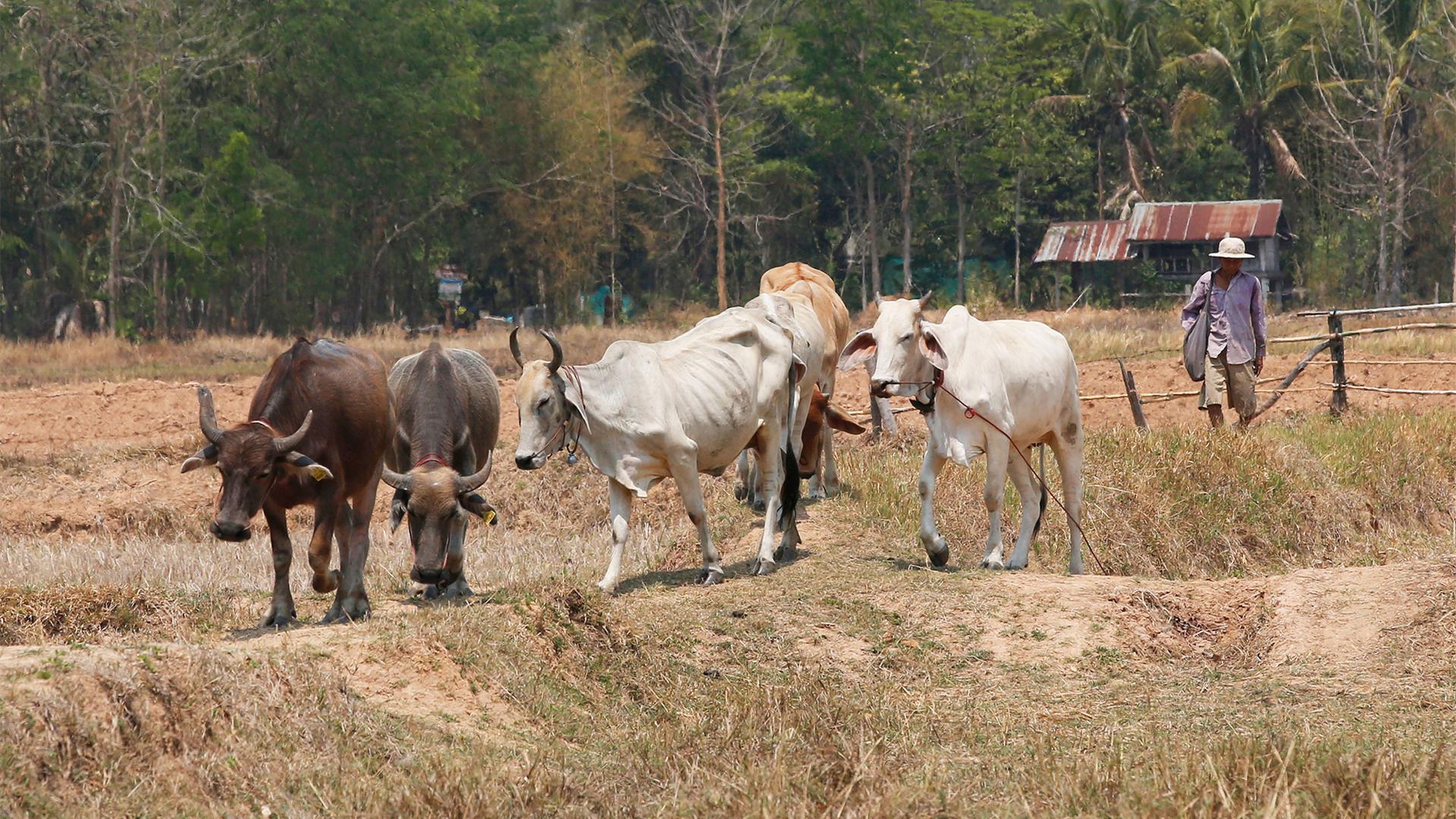Free pizza in Tel Aviv. Free cannabis joints in Michigan. Free cars in Moscow.
Around the world, local officials are enticing citizens to get vaccinated against COVID-19 with all sorts of giveaways. But one district in northern Thailand is offering the beefiest incentive yet: a live cow.
Related: Cash, beer, doughnuts: Can incentives work to get people vaccinated?
Mae Chaem is a pastoral district, nearly the size of Rhode Island, defined by mountain peaks and rolling corn fields. To the people of this district, a cow is a valuable beast. So says Boonlue Thamtharanurak, the district chief, speaking to local media to encourage more local to get jabbed.
“A cow will get you quick cash.”
“Cows are easy to raise, easy to sell,” Booonlue says. “Imagine [your child’s] school term starts and you need money, or you’re in hot water. A cow will get you quick cash.”
Most local slaughterhouses will buy a fully grown Thai breed for roughly $300. The bovines common in Thailand are not black-and-white cows with splotchy hides, but umber-colored and humpbacked — more akin to cows seen in India. They’re seldom milked. But their manure makes for fine fertilizer. They are hulking creatures, growing to nearly one ton.
Related: Vaccine envy? There’s a German word for that.
Each week, for the rest of the year, the district will dole out one cow through a raffle system— and even deliver it straight to the winners’ homes. Only those who’ve signed up for vaccinations are in the running.
So far, Thailand has been slow to vaccinate its population. Less than 3% are fully inoculated, most of them with Sinovac, which is produced in China.
In Thailand, a major vaccine rollout begins this month, largely focused on urban centers where infections are spiking. But there are fears that, in the less-crowded upcountry, fewer people will rush to vaccinate. The cows-for-vaccines campaign hopes to get Mae Chaem’s entire population vaccinated before the year ends.
Related: South Africa boosts Africa’s COVID-19 vaccine supply with local manufacturing
Though currently struggling with a COVID-19 surge, Thailand has not experienced the fatal infection waves seen in the US, Brazil and India. Still, the country is suffering. Roughly 20% of its economy relied on tourism prior to the onset of COVID-19. Since early last year, foreign travelers, facing onerous stints in quarantine, have stayed away — and the once-booming tourism economy is in shambles.
“We can’t live like this at all,” says Bhumikitti Ruktangam,” president of a tourism association in Phuket, a popular island where an aggressive inoculation drive is also underway. Vaccines, he says, will return the “fire to our eyes … and bring back hope again.”
Related: The quest for a universal coronavirus vaccine
But until all of Thailand reaches herd immunity — pegged at 70% of the population — it will be difficult to welcome tourists back. That will require people from the mountains to the sea to receive the jab. And Thailand’s prime minister intends to fully open the country to tourists by October.
“We just want to see everyone happy and vaccinated.”
“We just want to see everyone happy and vaccinated,” Boonlue says, “and to see this great stress disappear.”
